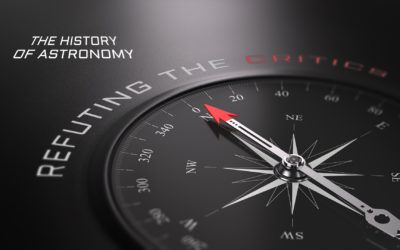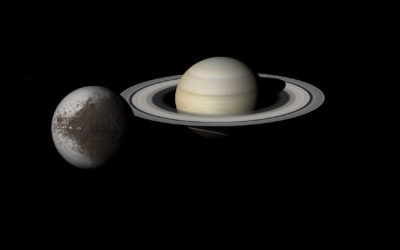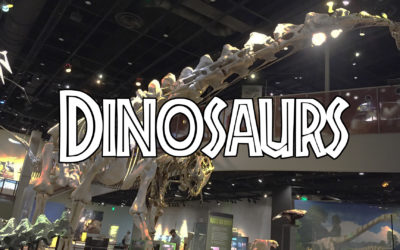ARTICLE ARCHIVES

The Failure of Unbiblical Worldviews to Justify Laws of Logic
We saw previously that the Bible can make sense of laws of logic and their properties, and that the three laws of thought are rooted in the nature of God. However, non-biblical worldviews cannot make sense of laws of logic or their properties.
The Biblical Basis for the Laws of Logic
Laws of logic are the rules of correct reasoning. They reflect the way God thinks and the way we must think if we are to think correctly. Laws of logic are also called “rules of inference.” Correct reasoning can never violate a law of logic. There are many laws of logic. But three are considered the most basic or primary.
The Problem of Religious Language
Christians have a tendency to use certain “religious” terms that are either directly from Scripture, or which are used as shorthand to describe a biblical principle (such as the ‘Trinity’). There is nothing wrong with this. However, it can be a problem in communicating with unbelievers.
Science and the Age of the Universe
The Bible teaches that God created the entire universe in 6-days, a few thousand years ago. However, most secular scientists today believe that the universe popped into existence in a big bang, 13.8 billion years ago, and that it took billions of years for the cosmos to evolve to its current state. Have the secularists finally shown God’s Word to be wrong?
Refuting the Critics: Astronomy and Biblical Interpretation
Today’s conversation is a continuation of the previous one. Recall, Rubin had complained that the article was mistaken and that the conclusion that the Bible teaches a spherical Earth that hangs in space, etc. was based on “translation tricks.” Here is the rest of our conversation.
Refuting the Critics: The History of Astronomy
Our critics this week have commented on the recent article on the History of Astronomy in which we examined the biblical texts that touch on astronomy. The first critic, Rubin, has clearly been influenced by the near-eastern mythology view…. The other critic, Peter, was also uninformed on the issue, and was far less coherent.
The History of Astronomy
The development of astronomy throughout history is a magnificent confirmation of biblical authority. The Bible is God’s inerrant, propositional revelation to man. As such, the Bible is absolutely correct in everything it affirms. This naturally includes its claims about the universe. When the Bible touches on the topic of astronomy, it is absolutely correct. The history of astronomy confirms this.
Logic: Enthymemes
An enthymeme is an argument in which one of the premises or the conclusion is not explicitly stated. Usually, this is because the unstated claim is obvious. Enthymemes are perfectly acceptable if used properly. But sometimes, they can be used incorrectly to draw a false conclusion. So, understanding enthymemes can be extremely useful in apologetics.
Dinosaurs – Part 3
The Bible contains numerous references to “dragons” and other creatures that resemble dinosaurs, such as Behemoth, as well as other extinct reptiles like Leviathan and the flying serpents. Most of these references are after Genesis 6-8, implying that these kinds survived the global flood. So how and when did these marvelous creatures go extinct?
Dinosaurs – Part 2
In part 1, we found that we can learn much about the history of dinosaurs from Scripture, even though the term ‘dinosaur’ is modern and therefore not to be found in the ancient text. Yet, the King James Bible uses the word ‘dragon’ or ‘dragons’ 35 times. Could some of these be dinosaurs?
Dinosaurs – Part 1
How do dinosaurs fit into the history recorded in the Bible? Some would say, “They don’t. Dinosaurs lived millions of years before people were around. The Bible doesn’t mention them.” Dinosaurs are often used as an icon for evolution and deep time. It seems that there is no need to make a logical argument for an “old earth” – just say the word “dinosaurs” and you win! After all, we all know that dinosaurs lived millions of years ago, and some evolved into birds. Or did they?
Refuting the Critics: Geology and the Flood
Creation 101: Geology Part 2
In part one, we examined the basics of geology, and found that scientists generally agree on the observational aspects of geology regardless of their respective positions on origins. But when it comes to interpreting geological events of the past, we form different conclusions on the basis of different starting presuppositions and views of Earth history.
Creation 101: Geology Part 1
Geology is the study of the physical processes of Earth from plate tectonics and volcanos to minerals and rock layers. The field involves a combination of operational science and origins science. The operational aspects involve measuring the types of rocks and...
Logic: The Importance of Definitions
One of the most important tools in logical reasoning is a dictionary. Correct reasoning requires that we use words properly – according to their meaning. Failure to use words correctly often results in miscommunication, but it can also result in errors in reasoning.












